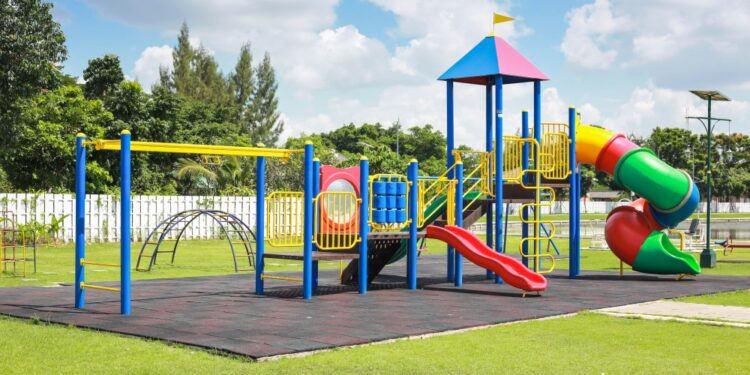There are several reasons why parents may decide to homeschool their children. Even individuals who want to take their children to school may find themselves at home with them owing to a teacher strike, bad weather, or a pandemic. If you’re one of these parents, you may be wondering how to include recess into your child’s daily routine. How do you encourage unstructured play in your household, and why is recess crucial for children?
Recess is important for a child’s academic achievement as well as their physical, social, and emotional well-being. Recess allows kids to be active in order to develop healthy bodies, enjoy moving more, and get the necessary 60 minutes of physical exercise each day. Recess allows children to release energy and tension, which enhances focus and minimises disruptive conduct in the classroom. Recess is a period of time set aside for leisure activities. They are momentarily relieved of their responsibilities.
When it comes to school, recess allows youngsters to play. In addition to other activities such as socialising, eating, and a variety of others. Recess has been shown to offer various advantages. It is a crucial instrument in a child’s entire development. They learn a variety of new things. They learn to be self-sufficient. Because they are not overseen by their teachers as they would be in a classroom. Several scientific studies have also demonstrated the benefits of recess.
Here are the major benefits of recess for kids.
1. Enhances memory and focus
When you give a child time to play, they will naturally focus more. You can’t expect them to function all the time. They recover their attention after taking a break. In other words, boring times may cause their thoughts to wander. A recess, on the other hand, sharpens their recall.
2. Improves physical activities
As previously indicated, youngsters spend more time watching television than playing. This is damaging in a variety of ways. Recess allows them to interact through physical activities. This is really beneficial to their health. It also encourages a healthy and active lifestyle. Inclusive Playground Equipment helps kids to improve physical health.
3. Life skills
Children must acquire soft skills in addition to those taught in the classroom. They require free time to communicate properly with other children, whether it is through enjoyable chats or a few squabbles. This helps children learn about real-life circumstances and improves the problem-solving abilities they will need as adults. Recess should be extended so that children have enough time to deal with a variety of circumstances.
4. Increase in productivity
When children are given the opportunity to study on a regular basis, their efficiency will undoubtedly improve. They will become inefficient if they study for long periods of time. Their tired mentality prevents them from being productive. However, recess can assist with this. They return rejuvenated and with productive outcomes.
5. Social growth
School plays an essential function in assisting children in socialising. Recess is the ideal time for youngsters to socialise on their own. As they bargain for the swing and other items. It allows kids to make decisions on their own.
6. Nurtures creativity
Recess is an excellent time to foster creativity since it allows children to make their own judgments about what and how to play. This allows youngsters to communicate ideas with one another, which frequently leads to the development of new games and concepts. During recess, students get the opportunity to ‘be whoever they want to be’.
7. Conflicts childhood obesity
Obesity in children has grown extremely widespread in recent years. It’s become the norm as more and more children spend time on their phones and tablets. Recess allows the youngsters to run about and have fun. As a consequence, their risks of becoming obese will be reduced.
8. Mental health
Long hours in the classroom might have a negative impact on children’s mental health. Even after a full day of learning at school, children frequently bring home a huge amount of homework, causing them to feel extremely overwhelmed. A longer recess, on the other hand, might simply provide enough exercise to assist reduce mental pain. By offering physical activities, time with friends, and a mental respite, recess plays a catalytic role in enhancing mental health. Endorphins, which are released during exercise, assist the mind fight worry and sadness. The social element of recess aids in the development of a healthy support system in children. Sunlight provides vitamin D, which is required for the body and mind to function properly.
9. Cuts down stress levels
Children’s academic performance is typically predictable. This might be taxing for them at times. Sometimes it’s because of incomplete schoolwork or a looming test. The youngster may become stressed as a result of this. They may fully unwind during recess. In addition to diverting their attention away from whatever was bothering them. As a result, recess decreases the stress levels of youngsters.
10. Better behaviour
Early morning recess is a fantastic way for youngsters to expend their first surge of energy of the day. This technique should be continued into primary school. Today’s generation spends much too much time on penalties when many behavioural concerns might be handled just by allowing for a longer recess. The extra leisure time, physical activity, and social time allows students to get things out of their system before returning to their next lesson.
Conclusion
No matter how much competition there is, recess will always be important. This must be ensured by the administration. After all, we are raising children, not robots. The provision of recess and play time in the different ways outlined in this chapter will significantly benefit both the kid and the school. Play is crucial for children’s and adolescents’ development since it adds to their cognitive, physical, social, and emotional well-being. It is in the student’s best interests to provide and incorporate recess as a more prominent component of the instructional day.




































































































































































































